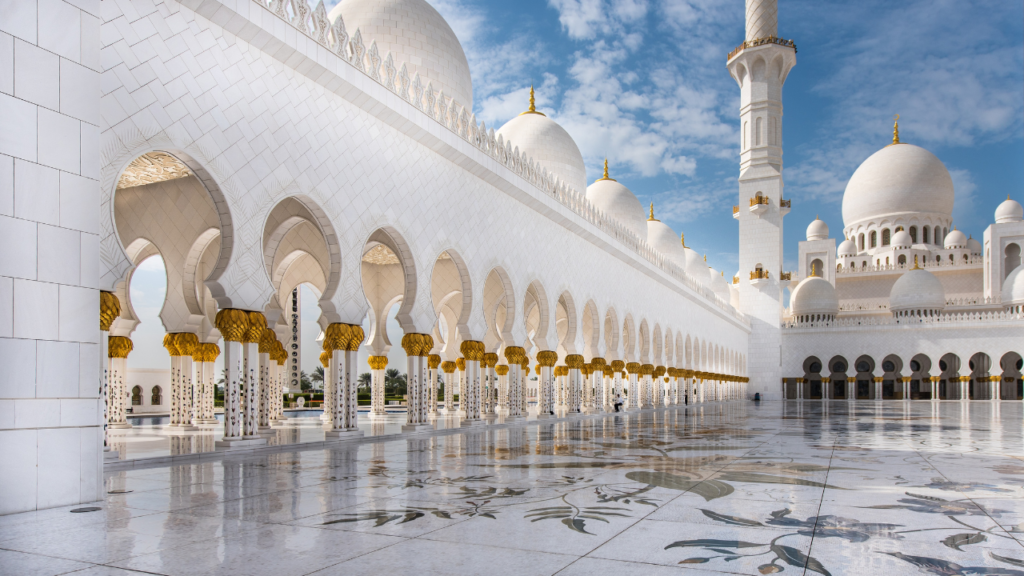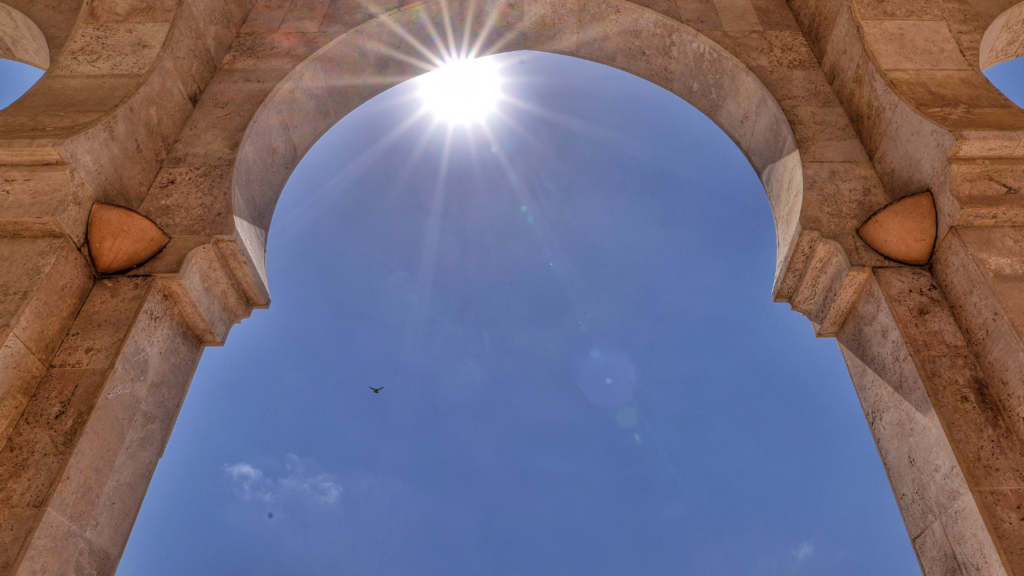
Islam
Islam is a monotheistic Abrahamic religion founded in the 7th century CE by the Prophet Muhammad. It is centered around the belief in one God, Allah, and the Quran, the holy scripture.

Introduction
Islam, one of the world’s major religions, boasts a rich history and a diverse global following. With over a billion adherents, it has a profound impact on the lives of people in numerous countries. In this article, we will provide a comprehensive overview of Islam, covering its history, beliefs, practices, and its significance in the modern world.
Origins and Historical Context
Islam emerged in the 7th century CE in the Arabian Peninsula, in what is now present-day Saudi Arabia. The religion was founded by the Prophet Muhammad, who is considered the last prophet in a long line of Abrahamic prophets that includes figures such as Abraham, Moses, and Jesus. Muhammad received revelations from God, as recorded in the holy book of Islam, the Quran, over a span of 23 years.
The historical context in which Islam emerged is crucial to understanding its early development. Mecca, the birthplace of Islam, was a thriving trade center where different tribes followed various polytheistic beliefs. The message of Islam, emphasizing monotheism, social justice, and the dignity of all human beings, challenged the existing social and economic norms.
Also check.
- What is Haram?
- Who is the Current Caliph of Islam?
- What Foods are Forbidden in Islam?
- What does Muslims Believe in?
- When was Islam Founded?
Beliefs
- Monotheism: The central belief in Islam is the oneness of God (Allah in Arabic). Muslims believe that there is no god but Allah, and He is the sole creator and sustainer of the universe.
- Prophethood: Muslims believe that Muhammad is the last prophet and messenger of God. He is seen as the “Seal of the Prophets,” meaning that there will be no more prophets after him.
- The Quran: The Quran is the holy scripture of Islam, believed to be the literal word of God as revealed to Muhammad. It contains guidance on all aspects of life, including morality, laws, and spirituality.
- Angels and the Day of Judgment: Muslims believe in angels and in the Day of Judgment when all individuals will be held accountable for their deeds and rewarded or punished accordingly.
Practices
- The Five Pillars of Islam: a. Shahada: The declaration of faith, bearing witness that there is no god but Allah and that Muhammad is His prophet. b. Salat: The performance of five daily prayers facing the Kaaba in Mecca. c. Zakat: The giving of alms to support the less fortunate. d. Sawm: Fasting during the holy month of Ramadan from dawn to sunset. e. Hajj: The pilgrimage to Mecca, obligatory for those physically and financially able to make the journey.
- Dress Code: Many Muslims follow modest dress codes, with women often wearing a hijab (headscarf) and men wearing long robes and a cap during prayers.
- Halal Dietary Laws: Muslims adhere to dietary restrictions, consuming only food and drink that is deemed permissible under Islamic law.
- Community and Charity: Muslims are encouraged to engage in community service, support the less fortunate, and show kindness to others.
Significance in the Modern World
Islam has a profound influence on the modern world, affecting politics, culture, and society in various ways. Some key points of significance include:
- Global Community: Islam is a unifying force for Muslims worldwide. It connects diverse cultures and peoples through a shared faith, creating a sense of unity among the global Muslim community, or ummah.
- Political Influence: Islamic political movements and organizations have played significant roles in various countries, shaping political landscapes and advocating for social justice.
- Cultural Contributions: Islamic culture has contributed immensely to art, architecture, literature, and science, with the Islamic Golden Age being a period of significant advancement.
- Interfaith Dialogue: Interfaith dialogue is essential for fostering understanding and cooperation between different religious groups. Muslims are actively engaging in these conversations to promote peace and tolerance.
- Challenges and Misconceptions: Islam has faced challenges and misconceptions, often fueled by stereotypes and a lack of understanding. Addressing these issues is crucial for promoting mutual respect and peaceful coexistence.
Conclusion
Islam is a complex and multifaceted religion with deep historical roots and a global following. Its beliefs and practices are guided by a commitment to monotheism, social justice, and the welfare of all humanity. In the modern world, Islam continues to shape societies, politics, and culture while striving to foster understanding and cooperation in an increasingly diverse and interconnected global community. Understanding and respecting the beliefs and practices of Islam is essential for promoting peace and harmony in our diverse world.

FAQs
What is Islam?
Islam is a monotheistic Abrahamic religion founded in the 7th century CE by the Prophet Muhammad. It is centered around the belief in one God, Allah, and the Quran, the holy scripture.
Who is the Prophet Muhammad?
Prophet Muhammad is the last prophet in Islam, who received revelations from God through the angel Gabriel. He is revered as the “Seal of the Prophets.”
What is the Quran?
The Quran is the holy book of Islam, believed to be the literal word of God as revealed to Muhammad. It provides guidance on all aspects of life, from morality to laws.
What are the Five Pillars of Islam?
The Five Pillars are the core acts of worship and practice in Islam. They include the declaration of faith (Shahada), daily prayers (Salat), almsgiving (Zakat), fasting during Ramadan (Sawm), and the pilgrimage to Mecca (Hajj).
What is the significance of the Hajj pilgrimage?
The Hajj is a mandatory pilgrimage to Mecca that every physically and financially able Muslim should undertake at least once in their lifetime. It symbolizes unity, humility, and equality among Muslims.
What is the significance of Ramadan?
Ramadan is the ninth month of the Islamic lunar calendar during which Muslims fast from dawn to sunset. It is a time of reflection, spiritual growth, and increased devotion to God.
What is the difference between Sunni and Shia Islam?
Sunni and Shia are the two major branches of Islam. The main difference lies in their beliefs about the rightful successors of the Prophet Muhammad. Sunni Muslims follow the “Sunna,” or the way of the Prophet, while Shia Muslims believe that leadership should have been hereditary within the Prophet’s family.




